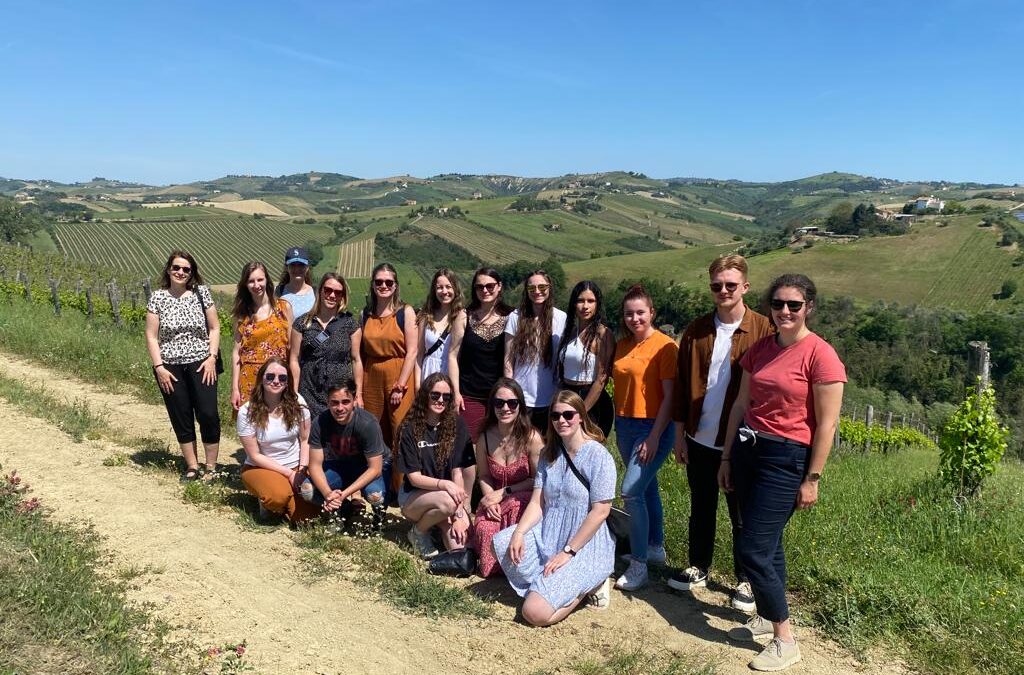As i-strategies, we designed an International Summer School format that is flexible and based on non-formal and informal educational activities. More in detail, we offer four experienced educational formats that can be combined according to the university’s and students’ specific needs:
Student-stakeholder dialogue. The student-stakeholder dialogue is a knowledge-exchange format to favour exchange between international university students and local Marche region stakeholders. The knowledge exchange is based on two pillars of the i-strategies education philosophy: 1) peer-to-peer learning approach. Students and stakeholders are conceived as, simultaneously, seekers and providers of knowledge; 2) place-based education. Place-based education (PBE) immerses students in local communities, allowing them to live an authentic experience of local context, highlighting the social impact of learning through participation in local projects. More information about student-stakeholder dialogue is here.
Learning visits. Learning visits organized by i-strategies are learning experiences outside the classroom. Visiting a workplace, students will learn to have direct contact with local companies and start-ups, cultural heritage sites, and local municipalities implementing innovative policies, especially in wine and food, tourism, culture and resilience. Students can meet entrepreneurs and employees, politicians and civil servants, local heroes and stakeholders, asking questions and learning from direct observation and interaction with people.
Narrative game. i-strategies developed an open-air narrative game that allows university students to experience the Intangible Heritage of the Marche region through authentic local stories and having fun. Based on our experience, students perceived traditional visit tours as boring. Consequently, we decided to offer them something more engaging, dynamic, and fun without forgetting the educational purposes of the game. International university students from the University of Macerata, Heilbronn University, the University of Sothern Denmark and the University of New Hampshire have successfully piloted the narrative game. More information about the narrative game is here.
Social activities. Social activities organized by i-strategies for students, like social dinners, wine tasting, visits to local cultural heritage sites and more, are not only social activities. They are informal learning experiences where students can enjoy the local cultural heritage, taste the Marche region’s traditional wine and food, and meet local people developing intercultural and social skills essential to their education.

